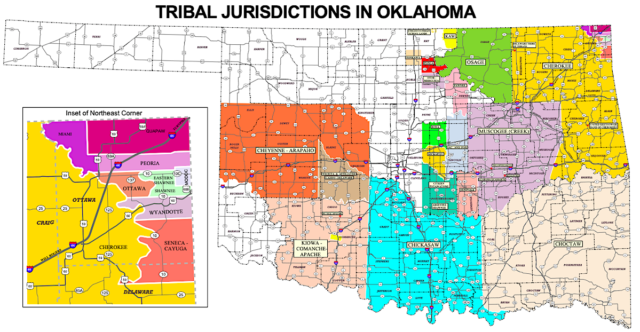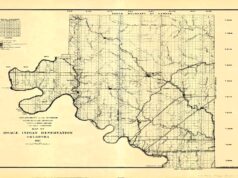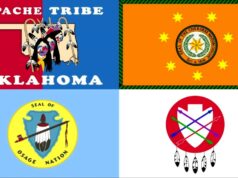Today is the first OKC Indigenous Peoples Day thanks to a proclamation from new Mayor David Holt.
Holt and those who pushed for the re-designation of the federal Columbus Day holiday in Oklahoma City should be praised, as the change helps highlight real people all around us in Oklahoma while the traditional American observance is mostly just a Monday off combined with asinine worksheets for elementary school students.
Advocates have pushed for an OKC Indigenous Peoples Day starting in 2015 but were rebuffed by the City Council.
What a difference a new mayor makes.
Holt is scheduled to read his proclamation at noon in the Chickasaw Sculpture Garden at Oklahoma City University. A panel discussion is set for 6 p.m.
Contrast of observances
Holt himself is a member of the Osage Nation, and NewsOK noted that Osage Nation Principal Chief Geoffrey Standing Bear had attended Holt’s swearing-in ceremony earlier this year.
Oklahoma features more than three dozen federally recognized tribes whose contributions to the state’s fabric and culture are important, dynamic and worth recognizing.
Still, the new OKC Indigenous Peoples Day is likely to rub some residents the wrong way, as most any change draws some criticism, and that goes double for anything involving race.
Some may be confused as to the meaning of the word “indigenous,” as four syllables can prove vexing for the feeble mind.
Merriam-Webster defines indigenous as “produced, growing, living or occurring naturally in a particular region or environment,” but in the United States the phrase “indigenous peoples” has become a widely accepted term for the first ethnic groups to inhabit North America. (Anthropologically speaking, indigenous peoples exist respectively across the world.)
Thus, the contrast of Indigenous Peoples Day with Columbus Day creates a powerful image and, subsequently, an intentional statement of values.
Columbus Day has historically been an observance of Christoforo Columbo’s “discovery” of North America. In an anglo-centric worldview, Americans have promoted rote memorization of Christopher Columbus’ ships, struggles and voyages. Only recently have discussions tied Columbus’ first contact with the indigenous peoples of North America to their eventual cultural destruction at the hands of white “Americans.”
In Oklahoma, the issue seems particularly relevant, and in recent years advocates have successfully moved the needle. At the University of Oklahoma, students, faculty and staff are preparing to celebrate Indigenous Peoples Day for the fourth year in a row. And in August 2017, the Norman City Council made a similar move.
Tulsa, meanwhile, chose to celebrate Native American Day on Columbus Day in 2017.
While the names of holiday observances are largely symbolic, these steps toward recognizing the people around us as opposed to the happy-history interpretations of Christopher Columbus make particular sense in the state of Oklahoma.
Happy Indigenous Peoples Day, readers.






















